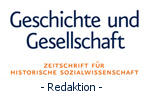Übung (Ü 13223): Science and Technology in the Twentieth Century
M.A.-Modul 3
Montag 16-18 Uhr, Koserstr. 20, A 124
This seminar will be taught in English
Our lives are enmeshed in complex ways with numerous aspects of science and technology. This seminar course will seek to disentangle and critically analyze how the allied fields science and technology have been conceived, produced, communicated and debated by scientists, scholars and non-expert groups during the second half of the twentieth century. Throughout the course participants will explore how scientific knowledge or ‘facts’ about humankind and the physical world are produced by social actors and historically embedded. Seminar participants will examine the shifting relationship between scientific work and technology, focusing on ways in which scientific knowledge is constituted in and through material practices and other forms of discourse.
Instead of studying science as a progression of abstract ideas and theories devised by solitary geniuses or groups of experts, we will explore how science is generated within specific contexts and social networks that facilitate interactions between professional scientists, technicians, and non-experts. A key question this course will address is: how are imaging technologies used by scientists and other professional groups to make sense of the world and convey knowledge?
The course is thematically organized, each seminar focusing on a particular topic or case study. Using scholarly texts, primary sources and other materials seminar participants will delineate the historicity of cultural practices and artifacts that exemplify science and technology in the twentieth century. Topics covered in the course include, but are not restricted to, historiography of science and technology, science studies and the sociology of scientific knowledge, technological determinism and social shaping of technology, scientific controversies, science and entertainment media, technology and gender, space exploration and universal knowledge, technological utopianism.
Background reading:
Bijker, W. E., Hughes, T. P. and Pinch, T. (1989) (eds.) The Social Construction of Technological Systems: New Directions in the Sociology and History of Technology (Cambridge, MA: MIT Press).
Daston, L. and Galison, P. (2007): Objectivity (New York: Zone Books).
Gray, C. H., Figueroa-Sarriera, H. J. and Mentor, S. (1995) (eds.) The Cyborg Handbook (London and New York: Routledge).
Kirby, D. (2010): “The Future is Now: Diegetic Prototypes and the Role of Popular Films in Generating Real-world Technological Development,” Social Studies of Science, 40(1), 41-70.
Latour, B. and Woolgar, S. (1979/1986): Laboratory Life: The Construction of Scientific Facts (Princeton, NJ: Princeton University Press).
Lenoir, T. (1998) (ed.): Inscribing Science: Scientific Texts and The Materiality of Communication (Stanford: Stanford University Press).
Lynch, M. and Woolgar, S. (eds.) (1990): Representation in Scientific Practice (Cambridge, Massachusetts and London: MIT Press).



